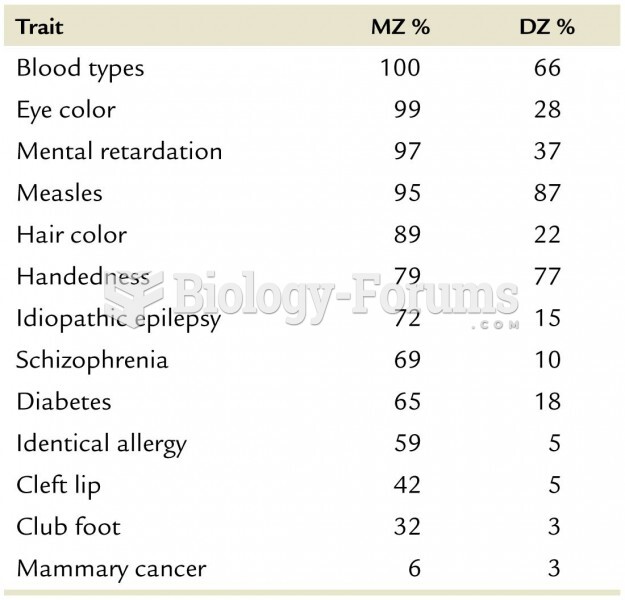|
|
|
Did you know?
Medication errors are three times higher among children and infants than with adults.
Did you know?
Nitroglycerin is used to alleviate various heart-related conditions, and it is also the chief component of dynamite (but mixed in a solid clay base to stabilize it).
Did you know?
The word drug comes from the Dutch word droog (meaning "dry"). For centuries, most drugs came from dried plants, hence the name.
Did you know?
Less than one of every three adults with high LDL cholesterol has the condition under control. Only 48.1% with the condition are being treated for it.
Did you know?
Long-term mental and physical effects from substance abuse include: paranoia, psychosis, immune deficiencies, and organ damage.
 Simple food web of an Arctic island. NOTE: The indication of detritivores and pathogens was not part
Simple food web of an Arctic island. NOTE: The indication of detritivores and pathogens was not part
 Measures of ocean chlorophyll-a concentrations from part of Atlantic Canada in (a) January 2006, and
Measures of ocean chlorophyll-a concentrations from part of Atlantic Canada in (a) January 2006, and





